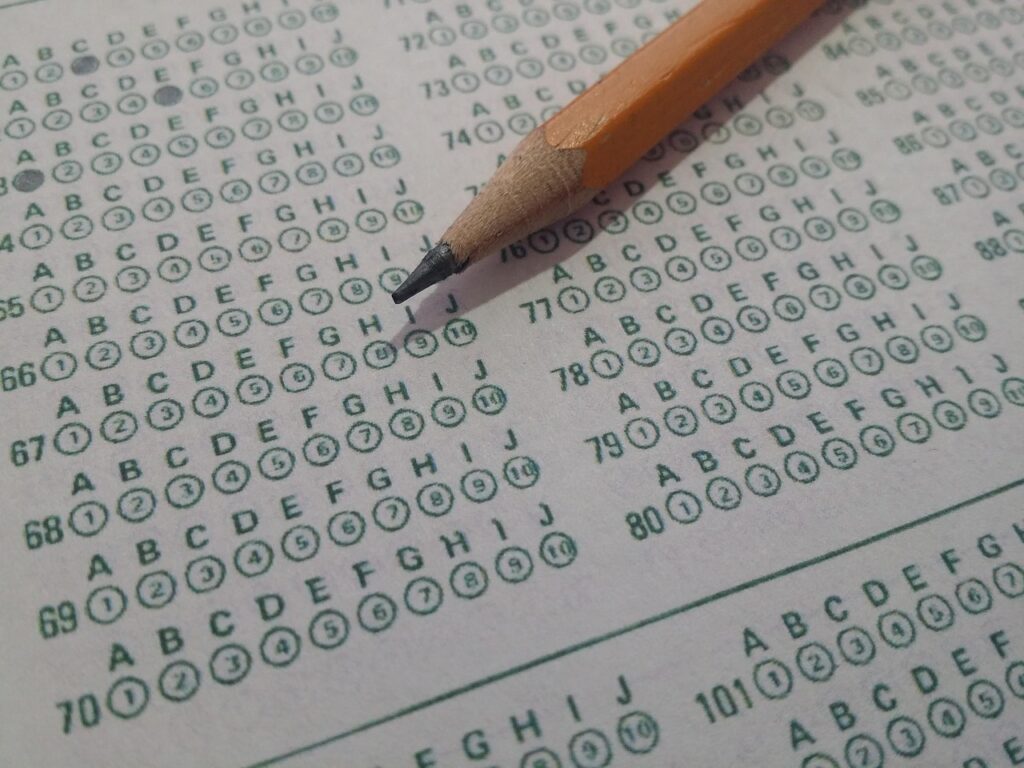As a student, you take quizzes and tests regularly to see how much you’ve learned. But have you ever thought about what these assessments are measuring? Simply put, assessments measure what you know and how well you understand it, but they can also measure your cognitive learning or how you think.
Cognitive learning is the process by which individuals acquire knowledge and understanding through thought, experience, and senses. It includes various mental processes, such as attention, perception, memory, reasoning, and problem-solving. Assessing cognitive learning involves evaluating these mental processes to determine how well a person has learned.
One way to assess cognitive learning is through multiple-choice questions. These questions ask you to choose the best answer from a given list of options. While multiple-choice questions are not always the best measure of cognitive learning, they can be an effective way to evaluate specific knowledge and understanding.
Another way to assess cognitive learning is through open-ended questions. These questions require you to provide detailed responses in your own words. By doing so, they show how well you can convey your understanding of a concept, as well as your ability to think critically and creatively.
Additionally, cognitive learning can be assessed through performance tasks. These tasks require you to demonstrate your understanding of a concept through action or application. For example, you might be asked to write a persuasive essay or to solve a complex math problem. Performance tasks show how well you can apply your knowledge to specific situations.
Assessment of cognitive learning is crucial because it helps educators understand how well students are learning and how they can improve teaching strategies. By evaluating students’ cognitive processes, teachers can determine whether they are learning the material effectively or if they need additional support. For students, cognitive assessment can help identify their strengths and weaknesses, which can be useful in developing personalized learning plans.
Some of the key benefits of assessing cognitive learning include identifying areas where you need to improve your understanding of a particular concept or subject, developing critical thinking skills, and improving overall academic performance. However, cognitive assessment is not always easy. It requires careful planning, implementation, and analysis to ensure that the results are accurate and meaningful.
One example of a cognitive assessment tool is Bloom’s Taxonomy. It is a classification system that describes different levels of cognitive thinking and learning, ranging from lower-order thinking skills, such as remembering and understanding, to higher-order thinking skills such as analysis and evaluation. Bloom’s Taxonomy is often used to design assessments that target specific cognitive processes.
In addition to tools such as Bloom’s Taxonomy, other factors that come into play when assessing cognitive learning include validity and reliability. Validity refers to how well an assessment measures what it is intended to measure. For example, if an assessment is meant to evaluate critical thinking skills, it should test the ability to analyze information and make inferences, rather than simply testing memory or recall.
Reliability is another important factor in cognitive assessment. It refers to how consistent the assessment results are over time and across different evaluators. For an assessment to be reliable, it must produce consistent results regardless of when it is administered or by whom.
Assessment of cognitive learning is a critical component of education. It helps educators understand how well students are learning and how to improve teaching strategies. For students, cognitive assessment can help identify areas where they need to improve their knowledge and understanding, develop critical thinking skills, and improve overall academic performance. It involves an array of assessment tools such as multiple-choice questions, open-ended questions, and performance tasks. Validity and reliability are important factors to consider when designing and administering cognitive assessments.





